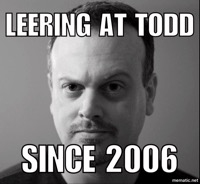 |
VO-BB - 19 YEARS OLD!
Established November 10, 2004
|
| View previous topic :: View next topic |
| Author |
Message |
Eddie Eagle
M&M
Joined: 23 Apr 2008
Posts: 2393
|
 Posted: Mon Jun 09, 2008 1:08 pm Post subject: Prepping a Vocal/ From EQ Magazine Oct. 07 Posted: Mon Jun 09, 2008 1:08 pm Post subject: Prepping a Vocal/ From EQ Magazine Oct. 07 |
 |
|
I posted this several months ago on the Yahoo VO Group bbs, had lost the mag and literally found it under my bed and reposting here for any interested.
This is an article I found in EQ Magazine back in October 07. Thought I lost the issue, but literally just found the mag under my bed. A number of people had asked to get a copy of it so I typed it out for historical reference purpose.
This article is directed to vocal tracks in music, although, the techniques are also translatable to voiceover. All this is from EQ Magazine, with the exception of a few of my notes as denoted☺ It was written by Craig Anderton.
REMOVE HISS
The first thing I do with a vocal is turn it into one ling track that lasts from the start of a song to the end, then bounce it to a disk for brining into a digital audio editing program. Despite the sophistication of host software, with a few exceptions ( adobe Audition and Samplitude come to mind), we’re not quite at the point where a multitrack host can always replace a solid digital-audio editor.
Once the track is in the editor, first stop is generally noise reduction. Sound Forge, Adobe Audition and Wavelab have excellent built-in noise reduction algorithms, but you can also use stand alone units like Diamond Cut 6. Choose a noise reduction algorithm that takes a noiseprint of the noise, and then subtracts it from the signal. Using this simply involves finding a portion of the vocal that consists only of hiss, saving that as a reference sample, then instructing the program to subtract anything with the sample’s characteristics from the vocal.
There are two cautions, though, First, make sure you sample hiss only. You8’ll need only a hundred milliseconds or so. Second, don’t apply too much noise reduction. About 6-10db should be enough-for reasons that will become especially obvious in the next section. Otherwise, you may remove parts of the vocal itself, or add artifacts, both of which contribute to artificiality. Removing hiss makes for a much more open vocal sound that also prevents “clouding” the other instruments.
DELETE SILENCES
Now that we’ve reduced the overall hiss level, it’s time to delete all the silent sections between vocal passages. If you do this, the voice will mask hiss when it’s present, and when there’s no voice, there will be no hiss at all.
With all programs, you start by defining the region you want to remove. From there, different programs handle creating silence differently. Some will have a “silence” command that reduces the level of the selected region to zero. Other will require you to alter the level, like reducing the volume by “-infinity”. (Eddie’s note: I use “mute” on sections in Sound Forge) Furthermore, the program may introduce a crossfade between the processed and unprocessed section, thus creating a less abrupt transition. (Eddie’s note: Sometimes I’ll use a fade in or out in Sound Forge) If it doesn’t, you’ll probably need to add a fade-in from the silent section to the next section. And a fade-out when going from the vocal into a silent section.
REDUCE BREATHS AND ARTIFACTS
I feel that breath inhales are a natural part of the vocal process, and it’s a mistake to use hard disk recording to get rid of these entirely. For example, an obvious inhale cues the listener that the subsequent vocal section is going to “take some work”.
That said, applying any compression later on will bring up the levels of any vocal artifacts, possibly to the point of being objectionable. I use one of two processes to reduce the level of artifacts.
The first option is to simply define the region with the artifact, and reduce the gain by 3-6db. This will be enough to retain the essential character of an artifact, but make it less obvious compared to the vocal.
The second option is to again define the region, but this time, apply a fade-in. This also may provide the benefit of fading up from a silence if silence precedes the artifact.
Mouth noises can be problematic, as these are sometimes short, “clicky” transients. In this case. You can sometimes cut the transient, and past some of the adjoining signal on top of it (choose an option that mixes the signal with the area you removed; overwriting might produce a discontinuity at the start or end of the pasted region). (Eddie’s note: Sometimes “mute” works or simply reducing volume on the artifact and the time of the section is not affected, thus flowing naturally as spoken or sung.)
PHRASE-BY-PHRASE NORMALIZATION
A lot of people rely on compression to even out a vocal's peaks. That certainly has its place, but there’s something you need to do first: Phrase-by-phrase normalization. Unless you have the mic technique of a KD Lang, the odds are excellent that some phrases will be softer than others. If you apply compression, the lower-level passages might not be affected very much, whereas the high-level ones will sound squashed. It’s better to get the entire vocal to a consistent level first, before applying any compression. This will retain more overall dynamics. If you need to add an element of expressiveness later on (e.g., the song gets softer in a particular place, so you need to make a vocal softer), you can do this with judicious use of automation.
However, be very careful to normalize entire phrases. You don’t want to get so involved in this process that you start normalizing, say, individual words. Within any given phrase there will be certain internal dynamics, and you definitely want to retain them.
DSP is a beautiful thing. Now our vocal is cleaner, of a more consistent level, and it has any annoying artifacts tame- all without reducing any natural qualities the vocal may have. At this point, you can start doing more elaborate processes, such as pitch correction (but please, apply it sparingly and rarely!) EQ, dynamics control, and reverb. But, as you add these, you’ll probably be doing so on a much firmer foundation. |
|
| Back to top |
|
 |
Jeffrey Kafer
Assistant Zookeeper

Joined: 09 Dec 2006
Posts: 4931
Location: Location, Location!
|
 Posted: Mon Jun 09, 2008 2:32 pm Post subject: Posted: Mon Jun 09, 2008 2:32 pm Post subject: |
 |
|
While I appreciate the post, Eddie, my initial reaction is Ugh.
Normalization
Noise Reduction
2 things that should never have to be done. If you need to normalize, record hotter from the get-go.
Noise Reduction. Record in a quiter place. NR is awful stuff as it creates a weird warbling sound.
If you have to do either of these, figure out the source of the problem, don't just apply a band-aid.
_________________
Jeff
http://JeffreyKafer.com
Voice-overload Web comic: http://voice-overload.com |
|
| Back to top |
|
 |
Eddie Eagle
M&M
Joined: 23 Apr 2008
Posts: 2393
|
 Posted: Mon Jun 09, 2008 3:52 pm Post subject: Posted: Mon Jun 09, 2008 3:52 pm Post subject: |
 |
|
| JeffreyKafer wrote: | While I appreciate the post, Eddie, my initial reaction is Ugh.
Normalization
Noise Reduction
2 things that should never have to be done. If you need to normalize, record hotter from the get-go.
Noise Reduction. Record in a quiter place. NR is awful stuff as it creates a weird warbling sound.
If you have to do either of these, figure out the source of the problem, don't just apply a band-aid. |
Jeff, I understand your points there. This article was written from the point of a recording studio doing music, although some of the basic stuff is translatable to voiceover. Music mixers are picky about the smallest of artifacts or issues as the recording is usually going out on an album master to be sold for a recording artist that will be heard by the world on CD or other record label distribution methods.
I actually use noise gate in most of my stuff. I don't want the hiss in the recording and use it to reduce or get rid of hiss all together. I have used noise reduction and it took some tooling around to get the settings right and sounded very good when I got the hang of it. The speed, release, floor and noise amounts cut are not easily acquired. Used the proper way it's a good thing. Sounds like you may not have your settings right if you are getting a warbling effect from noise reduction. What do you use and how is it set?
I don't use normalization unless a particular section needs it and typically I'll rerecord if it's that far out of whack. |
|
| Back to top |
|
 |
Jeffrey Kafer
Assistant Zookeeper

Joined: 09 Dec 2006
Posts: 4931
Location: Location, Location!
|
 Posted: Mon Jun 09, 2008 5:23 pm Post subject: Posted: Mon Jun 09, 2008 5:23 pm Post subject: |
 |
|
I don't use any NR. I do a very light compression/Expand, but only to smooth out the peaks and valleys. But my noise floor is low anyhow (-65db), so NR is not really necessary.
_________________
Jeff
http://JeffreyKafer.com
Voice-overload Web comic: http://voice-overload.com |
|
| Back to top |
|
 |
Frank F
Fat, Old, and Sassy

Joined: 10 Nov 2004
Posts: 4421
Location: Park City, Utah
|
 Posted: Mon Jun 09, 2008 6:16 pm Post subject: Posted: Mon Jun 09, 2008 6:16 pm Post subject: |
 |
|
There are tricks and toys of each trade in our recording world. Some of the suggestions presented are valid, many are not when it involves recording vocals (singing).
Often I use a slight noise gate and very light compression for breathy females - pre-mix. The reason: many sopranos have a very soft singing voice.
However, most level fixes are done by monitoring the audio as it is being recorded (faders are wonderful for this type of thing). After hearing the vocalist while rehearsing you will get a "feel" as to where the loud and low levels will be and you are then able to compensate for the disparity.
When recording VO, I am loathe to do much with the audio file. Being a purist I really enjoy a VERY clean audio chain. The video term "fix it in post" does not apply to VO audio.
After recording there are many effects which can and are used to fix slight fopaws. I have a series of effects I use to enhance the presence of a VO over music. But for "dry-voice" I leave it up to the producer to do his or her damage.
Singing voices and speaking voices are two entirely different animals.
Mastering audio is yet another story all together....
Toodles
F2
_________________
Be thankful for the bad things in life. They opened your eyes to the good things you weren't paying attention to before. email: thevoice@usa.com |
|
| Back to top |
|
 |
Yoda117
M&M

Joined: 20 Dec 2006
Posts: 2362
Location: Philadelphia, Pennsylvania
|
|
| Back to top |
|
 |
Frank F
Fat, Old, and Sassy

Joined: 10 Nov 2004
Posts: 4421
Location: Park City, Utah
|
 Posted: Tue Jun 10, 2008 11:32 am Post subject: Posted: Tue Jun 10, 2008 11:32 am Post subject: |
 |
|
Lemme hear a Hallelujah!
Toodles
F2
_________________
Be thankful for the bad things in life. They opened your eyes to the good things you weren't paying attention to before. email: thevoice@usa.com |
|
| Back to top |
|
 |
bobsouer
Frequent Flyer

Joined: 15 Jul 2006
Posts: 9883
Location: Pittsburgh, PA
|
 Posted: Tue Jun 10, 2008 12:00 pm Post subject: Posted: Tue Jun 10, 2008 12:00 pm Post subject: |
 |
|
Hallelujah!
_________________
Be well,
Bob Souer (just think of lemons)
The second nicest guy in voiceover.
+1-724-613-2749
Source Connect, phone patch, pony express |
|
| Back to top |
|
 |
Frank F
Fat, Old, and Sassy

Joined: 10 Nov 2004
Posts: 4421
Location: Park City, Utah
|
 Posted: Tue Jun 10, 2008 12:02 pm Post subject: Posted: Tue Jun 10, 2008 12:02 pm Post subject: |
 |
|
Thank you Bob! - he says very humbled...
Toodles
F2
_________________
Be thankful for the bad things in life. They opened your eyes to the good things you weren't paying attention to before. email: thevoice@usa.com |
|
| Back to top |
|
 |
bobsouer
Frequent Flyer

Joined: 15 Jul 2006
Posts: 9883
Location: Pittsburgh, PA
|
 Posted: Tue Jun 10, 2008 12:09 pm Post subject: Posted: Tue Jun 10, 2008 12:09 pm Post subject: |
 |
|
Frank,
You're welcome. (I guess the old saying, "Be careful what you ask for because you just might get it" applies.) 
_________________
Be well,
Bob Souer (just think of lemons)
The second nicest guy in voiceover.
+1-724-613-2749
Source Connect, phone patch, pony express |
|
| Back to top |
|
 |
Yoda117
M&M

Joined: 20 Dec 2006
Posts: 2362
Location: Philadelphia, Pennsylvania
|
|
| Back to top |
|
 |
Yoda117
M&M

Joined: 20 Dec 2006
Posts: 2362
Location: Philadelphia, Pennsylvania
|
 Posted: Tue Jun 10, 2008 12:18 pm Post subject: Posted: Tue Jun 10, 2008 12:18 pm Post subject: |
 |
|
| JeffreyKafer wrote: | | I don't use any NR. I do a very light compression/Expand, but only to smooth out the peaks and valleys. But my noise floor is low anyhow (-65db), so NR is not really necessary. |
Jeff, are you simply recording hotter and then using some light compression, or are you using the output stage of the compression to boost the level a bit?
_________________
Voiceovers by Gregory Houser
Philadelphia based Voice Actor
Blog - A man, a martini, and a lot of microphones |
|
| Back to top |
|
 |
Jeffrey Kafer
Assistant Zookeeper

Joined: 09 Dec 2006
Posts: 4931
Location: Location, Location!
|
 Posted: Tue Jun 10, 2008 12:27 pm Post subject: Posted: Tue Jun 10, 2008 12:27 pm Post subject: |
 |
|
I try to record at the correct volume and then compress. Adding a DB boost during compression would have the same negative effect as normalization. Though I will admit to having done this on occasion if a passage is quieter than I expected, but only by a db or two.
But normalization is a lazy quick fix for not doing it right the first time.
_________________
Jeff
http://JeffreyKafer.com
Voice-overload Web comic: http://voice-overload.com |
|
| Back to top |
|
 |
Eddie Eagle
M&M
Joined: 23 Apr 2008
Posts: 2393
|
 Posted: Tue Jun 10, 2008 12:51 pm Post subject: Posted: Tue Jun 10, 2008 12:51 pm Post subject: |
 |
|
 |
|
| Back to top |
|
 |
JTVG
Backstage Pass
Joined: 21 Jun 2007
Posts: 433
|
 Posted: Thu Jun 12, 2008 5:04 pm Post subject: Posted: Thu Jun 12, 2008 5:04 pm Post subject: |
 |
|
| JeffreyKafer wrote: |
But normalization is a lazy quick fix for not doing it right the first time. |
Jeff,
What's the difference? That's like saying compressing in your DAW and not with an outboard processor is the lazy way to do it. In one case, you're fixing the problem as it records and in the other, you're fixing it in post. Same thing with normalization.
I'm not seeing this why this is such a big deal?
Also, if you've ever produced radio imaging using another talent's VO, normalizing/compression/limiting is often your best friend.
_________________
Joe Szymanski
http://www.joethevoiceguy.com |
|
| Back to top |
|
 |
|
|
You cannot post new topics in this forum
You cannot reply to topics in this forum
You cannot edit your posts in this forum
You cannot delete your posts in this forum
You cannot vote in polls in this forum
|
Powered by phpBB © 2001, 2005 phpBB Group
|




